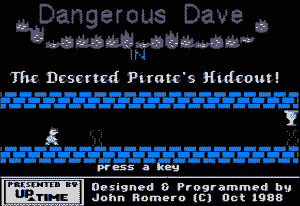Retro Replay Review
Gameplay
Incunabula delivers a deeply strategic, turn-based experience where three to seven players—either human or computer-controlled—vie for supremacy by advancing their civilizations from humble tribes to sprawling empires. Each turn, players issue movement and production orders for cities, fleets, armies, and caravans, only to have the computer resolve those commands in a randomized sequence. This unpredictability adds a thrilling layer of tension: will your carefully planned reinforcement reach the battlefield, or will famine and insurrection derail your ambitions?
(HEY YOU!! We hope you enjoy! We try not to run ads. So basically, this is a very expensive hobby running this site. Please consider joining us for updates, forums, and more. Network w/ us to make some cash or friends while retro gaming, and you can win some free retro games for posting. Okay, carry on 👍)
Resource management is at the heart of Incunabula. You must balance the production and consumption of grain, metal, and trade goods while ensuring your population remains happy and fed. Choosing one of four “bases of law”—Theocracy, Oligarchy, Utopia, or Khanate—further shapes your economy and military might. Theocracy and Utopia may bolster internal stability but slow down army conscription, whereas Oligarchies and Khanates trade civil order for aggressive expansion and raiding capabilities.
Beyond the main campaign, Incunabula offers two engaging scenarios for players who crave a more focused challenge. In Imperium, diplomacy and trade take a back seat as you vie for military supremacy, building cities and war fleets until only one power remains. Traders strips away movement and warfare entirely, rewarding the first player to amass 1,000 trade points through clever bartering and market manipulation. These shorter modes make Incunabula accessible for quick sessions or straight-up contests of martial or economic prowess.
Graphics
Graphically, Incunabula embraces a clean, utilitarian aesthetic typical of late-80s and early-90s PC strategy titles. The overhead map uses simple tile-based art to distinguish terrain types—plains, forests, seas, and mountains—while cities and units are represented by easily recognizable icons. Though lacking flashy animations, the clarity of the interface ensures you always know the status of your resources, armies, and diplomatic relations at a glance.
The user interface is functional rather than decorative: command menus are text-driven, and unit orders are selected via keyboard or simple mouse clicks. While modern players accustomed to fully animated battle sequences may find this minimalist approach austere, it keeps the focus squarely on strategy and planning. Loading screens and turn-resolution animations are minimal, meaning downtime between turns is quick, allowing you to keep the momentum going.
Occasional disaster animations—like a brief quake shaking the map or a famine icon overlay—do provide visual feedback when calamity strikes. These small flourishes, combined with a straightforward color scheme, give the game just enough visual variety to keep long campaigns from feeling static. Ultimately, Incunabula’s graphics serve its gameplay philosophy: depth over dazzle.
Story
Incunabula doesn’t follow a predefined narrative; instead, it weaves a unique story each time you play through the actions you take and the events you survive. As your tribe evolves into a nation and then into an empire, you craft an emergent tale of conquests, alliances, betrayals, and disasters. The randomness of turn resolution, combined with unpredictable plagues, famines, and insurrections, ensures no two campaigns unfold the same way.
The choice of “basis of law” not only affects mechanics but also shapes the cultural and political flavor of your civilization. A theocracy might be beset by religious uprisings but enjoys divine favor on the battlefield, whereas a khanate rides across the map as a nomadic warband, pillaging foes and forging ephemeral pacts. This allows you to role-play different governing philosophies, adding narrative depth to each playthrough.
Because Incunabula is loosely based on the Avalon Hill Civilization board game, aficionados of tabletop strategy will appreciate its emphasis on emergent storytelling through gameplay rather than cutscenes or fixed plot lines. Every diplomatic agreement, every grain shortage, every earthquake contributes to the ongoing saga of your people, creating a dynamic story that is as much about survival as it is about conquest.
Overall Experience
Incunabula is a rich, replayable strategy title that caters to players who relish meticulous planning, resource juggling, and the ever-present risk of unforeseen disasters. While its graphics and interface may feel dated to those accustomed to modern wargames, the core gameplay remains compelling: you’ll find yourself poring over production tables, negotiating fickle alliances, and bracing for the next calamity.
The inclusion of separate scenarios—Traders for pure economic competition and Imperium for all-out warfare—provides flexibility in session length and focus. This modular approach makes it easy to introduce new players to the game’s mechanics without committing to a marathon campaign, while veterans can still dive into the full multi-stage empire-building experience.
Overall, Incunabula stands out for its blend of strategic depth, emergent storytelling, and enduring challenge. Whether you’re drawn to its board-game heritage or the thrill of surviving famine, plague, and civil unrest, this game offers countless hours of nuanced decision-making. For anyone seeking a classic strategy romp that rewards both tactical savvy and adaptability, Incunabula remains a memorable journey from tribe to empire.
 Retro Replay Retro Replay gaming reviews, news, emulation, geek stuff and more!
Retro Replay Retro Replay gaming reviews, news, emulation, geek stuff and more!









Reviews
There are no reviews yet.